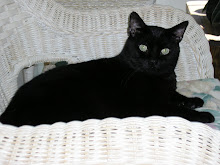Sunday Morning Post (V.1; #10): Happy Birthday, Doris Day!
Okay, it’s
been a rough week for liberals. The
Mueller Report was released and a 4-page summary by AG William Barr has given everyone
the impression that the President did not commit any crimes. The left has been wringing their hands that
no smoking gun was found. Meanwhile, the
sight of the President gloating at a rally in Michigan (post-release of the
summary of the Mueller Report) was nauseating.
Will this man ever reach the emotional maturity of a six-year-old? I’m not holding my breath.
At the same time, a few commentators – Marc A. Thiessen of The Washington Post and Christine Flowers of The Philadelphia Inquirer — have scolded the left for acting so disappointed that Mueller did not call the President out as a traitor. They say we should be grateful that the President is not a traitor.
This would be all well and good if there wasn’t widely broadcast videotape evidence of the President calling on Russia to release e-mails that would damage his opponent’s chances of becoming the first women elected President.
Proof of treason? Perhaps not found yet, but the release of the Mueller Report is only the end of the first act. No smoking gun yet, but we need to allow that branch of the government (i.e., Congress) who are Constitutionally-appointed to serve as the check to the powers of the Executive Branch to do their investigative work. As I recall, l the smoking gun in Watergate wasn’t found until Congress investigated Nixon’s misdeeds. It will most likely unfold the same way this time.
Will this man ever reach the emotional maturity of a six-year-old? I’m not holding my breath.
At the same time, a few commentators – Marc A. Thiessen of The Washington Post and Christine Flowers of The Philadelphia Inquirer — have scolded the left for acting so disappointed that Mueller did not call the President out as a traitor. They say we should be grateful that the President is not a traitor.
This would be all well and good if there wasn’t widely broadcast videotape evidence of the President calling on Russia to release e-mails that would damage his opponent’s chances of becoming the first women elected President.
Proof of treason? Perhaps not found yet, but the release of the Mueller Report is only the end of the first act. No smoking gun yet, but we need to allow that branch of the government (i.e., Congress) who are Constitutionally-appointed to serve as the check to the powers of the Executive Branch to do their investigative work. As I recall, l the smoking gun in Watergate wasn’t found until Congress investigated Nixon’s misdeeds. It will most likely unfold the same way this time.
As the President might say, “Just watch!”
So, fellow liberals, let us take heart that the investigation is far from over and hopefully will end with as little trauma as possible to our national psyche. We should adopt a more philosophical stance towards all this if nothing else than to prevent whatever is left of our sanity from spilling out as we foam with moral outrage. We should take counsel in the wise words of Doris Day: “Que Sera Sera.” *
Ms. Day will be having another birthday this week. It would be impolite to publish her exact age, but suffice it to say she is well north of 90. I am including a video tribute of, arguably, her greatest hit. My parents chose this song as their song, and it served them well through the years.
So be of good cheer. Whatever will be, the best will be.
*Holy hard left turn segue, Batman!!
(Thank you
for reading. Thank you, Ms. Day.)

